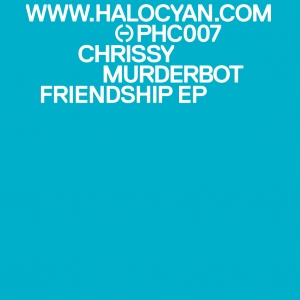 Contrary to popular belief, there are times when it is not only acceptable for an artist to be outdone on their own project, but where it might even behoove them. There are two ways in which this admittedly unlikely and seemingly paradoxical fact can occur. One is where it gives the artist a chance to reflect and revel in some delightfully frank self-depreciation, a quality that can be downright endearing in the right quantity. This situation works best with artists whose persona is built upon a foundation of hubris and ego (read: rappers), with the ability to not only weather such a phenomena, but to find a glimmer of humanity in the humility. A prime example is Game admitting Tyler, The Creator ate him alive on “Martians vs. Goblins” (“He killed me on my own track/So what? Not you”) and then proceeding to bounce back in the very next bar, implying that his lyrical prowess was still enough to allow him into that most sacred of rap pantheons, Erykah Badu.
Contrary to popular belief, there are times when it is not only acceptable for an artist to be outdone on their own project, but where it might even behoove them. There are two ways in which this admittedly unlikely and seemingly paradoxical fact can occur. One is where it gives the artist a chance to reflect and revel in some delightfully frank self-depreciation, a quality that can be downright endearing in the right quantity. This situation works best with artists whose persona is built upon a foundation of hubris and ego (read: rappers), with the ability to not only weather such a phenomena, but to find a glimmer of humanity in the humility. A prime example is Game admitting Tyler, The Creator ate him alive on “Martians vs. Goblins” (“He killed me on my own track/So what? Not you”) and then proceeding to bounce back in the very next bar, implying that his lyrical prowess was still enough to allow him into that most sacred of rap pantheons, Erykah Badu.
The other flavor of acceptable outclassing is one that benefits primarily the listener; that is, when the pieces that are eclipsing the talent whose name is on the cover are actually the only artistic endeavors making the project worth listening to. So goes Chrissy Murderbot’s Friendship EP, which is saved from a fate worse than death or failure — mediocrity — by the presence of remixes from Legowelt and Sumsun, a life-saving performance that almost singlehandedly justifies remix culture and the rise of remixes as the new B-sides.
Related Posts
“Bionic Penguins” is percussive and choppy, a collection of epileptic gas range igniter ticks and sparkling synths, like an Atari reaching climax repeatedly over a genuinely interesting drum beat. The beat proves to be the most flexible piece of the composition, shifting gears from rat-a-tat dance one could imagine Die Antwoord having a field day with, to something with a vague echo of classic Chicago house to a slower, stuttering lurch. Unfortunately, the masterful selection and control displayed with the drums is the most interesting part of the song; the rest is dressed up in trills and frills and vocal qualities, but never rises above standard grade electronic dance music.
The blips, bloops, and bops such music consists of dominate “Friendship” as well, although in a more interesting fashion than “Bionic Penguins.” This is due primarily to subjective alchemy, the arrangements just plain more interesting here than there; elements drop out and return, and the entire thing gets damn interesting at the 1:41 mark as it begins to swagger and slog like a wounded animal, which should be taken as a compliment. Once again, the beat is the key, this one a slightly off-center jumble that works well with the more wide open architecture above it. Still, the piece would be more enjoyable on the properly dissociative dance floor or in the black-lit kitchen of a druggy house party in which it belongs, not on headphones before a pen and pad.
Legowelt’s remix of “Friendship” is immediately more arresting than the original, with a lush, marbled fairy temple charm and more textured composition. The chirps evoke a midnight summer serenade, tree frogs and crickets and lake breezes, juxtaposed adroitly by the up-tempo pace, which has a delightful habit of breaking into something mimicking the famous break of “Poison” before the song gets into its more melodic hook. Legowelt’s construction is more varied than the originals, avoiding the linear format that can be anathema to the genre. Listening to the original and the remix back to back is akin to jumping from George Eliot to Oscar Wilde; both are writers, and even of the same time period, but one would never confuse the former for the latter.
The “Bionic Penguins” remix receives an interesting facelift as well. Sumsun utilizes more sweeping vistas, especially compare to the clipped sounds on the rest of the EP. Once again the action is in the percussion, as a simmering dancehall-esque rhythm slinks into what can best be described as spartan, alien reggaeton, a sound that deserves to be explored further.
Both reinterpreted contributions provide an anodyne to the skeletal collection of bits and clicks that compose the rest of the album, the Neptune’s heyday in a blender and poured out onto the track. They rescue a solidly made album from being completely standard; it is not substandard, sure, but is that fate not more appealing in the end? Tepid water is the most unpleasant to the tongue.
(Halo Cyan Records, no address provided)
—
B. David Zarley is a freelance writer based in Chicago. You can find him on Twitter, @BDavidZarley, or check the bars around Wrigleyville on any given night.